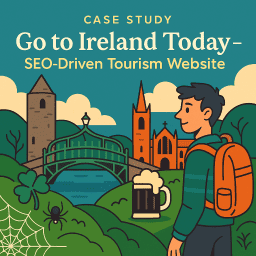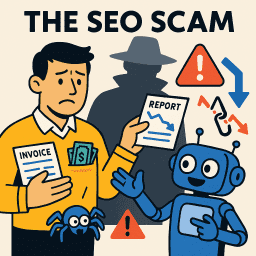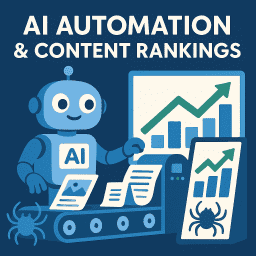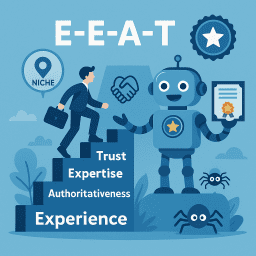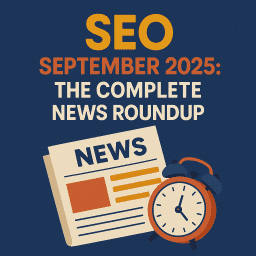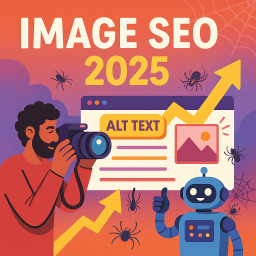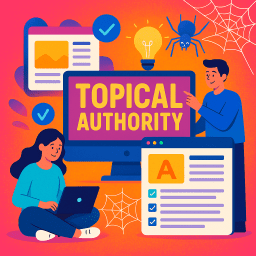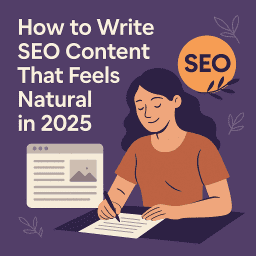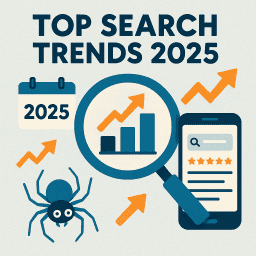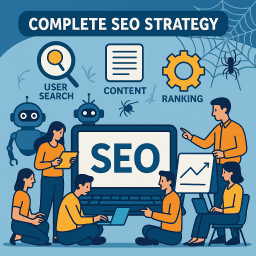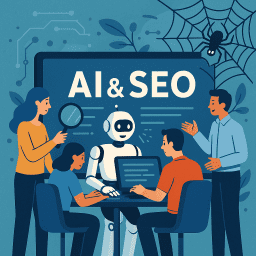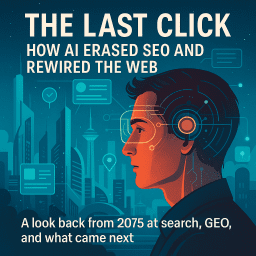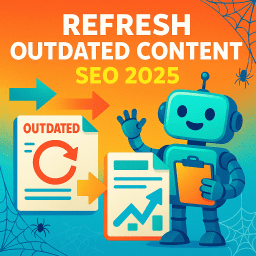Google and Affiliate Links: 2025 Best Practices Guide
🔗 What affiliate sites need to know in the age of EEAT and AI
🔗 Affiliate Links: How to Use Them Without Hurting SEO
Affiliate links are URLs containing a unique identifier that tracks referrals and commissions for online sales. They’re the backbone of many content monetisation strategies—from product reviews to price comparison sites and blogs with “Top 10” lists.
🔍 Does Google Penalise Affiliate Links?
Not directly. Google doesn’t punish you simply for using affiliate links. However, it does scrutinise affiliate-heavy content more critically than standard editorial content. This scrutiny focuses on:
- 🛑 Low-quality, thin, or duplicate content
- 📉 Pages designed solely for monetisation with little user value
- 🤥 Misleading claims or fake reviews
The presence of affiliate links isn’t the problem—it’s the lack of genuine value that triggers ranking drops.
📌 Google’s Official Guidelines on Affiliate Links
Google has repeatedly stated that:
- 🔗 Affiliate links must be disclosed clearly to users
- 👁️🗨️ They should include the
rel="sponsored"orrel="nofollow"attribute - 📚 Pages should offer original insight, comparison, or helpful information
In short: don’t use affiliate links as the core value of a page. Add them to enhance useful, high-quality content—not to replace it.
📉 The Affiliate Content Crackdown (2022–2024)
Between 2022 and 2024, Google rolled out multiple Product Review Updates aimed squarely at affiliate content. These updates favoured:
- ✅ Expert-driven content
- 🧪 Real-world product usage or testing
- 📸 Original photos, videos, or evidence
- 📏 Comparative analysis (vs. just specs)
Sites that simply republished manufacturer blurbs, scraped reviews, or offered no new value saw major drops in traffic.
⚖️ How EEAT and Affiliate Sites Interact
EEAT—Experience, Expertise, Authoritativeness, and Trust—has become a defining lens for evaluating affiliate content in 2025. Google expects affiliate pages to show:
- 👤 The author’s relevant experience
- 🔍 First-hand product insights
- 📢 Transparent disclosures
- 🏆 Editorial independence (not paid-for praise)
Google wants affiliate content to feel as reliable and useful as an article in a respected consumer magazine—not a spammy landing page.
🤖 What About AI-Generated Affiliate Content?
Google’s stance on AI content applies to affiliate sites too. If AI tools like ChatGPT or Claude are used, the output must still:
- 🧠 Demonstrate originality and insight
- 👁️ Be reviewed and edited by humans
- 📜 Be clearly labelled where appropriate
Auto-generated reviews, product roundups, or spun content with affiliate links will almost certainly not rank well in 2025.
🔧 Best Practices for Affiliate SEO in 2025
- 📍 Add
rel="sponsored"to all affiliate links - 💬 Use clear affiliate disclosures (above the fold if possible)
- 📖 Write detailed, first-hand content with real opinions
- 📊 Use tables or visuals to make comparisons easier
- 👨🔬 Include real tests, use cases, or interviews
- 🎥 Add original media (images, videos, screenshots)
🚫 What to Avoid
- ❌ Thin content padded with affiliate links
- ❌ Copy-pasted manufacturer specs with no context
- ❌ Misleading product claims or fake reviews
- ❌ Hidden affiliate links with no user disclosure
💡 Expert Tip
“Affiliate content can be incredibly useful—but only when it’s written with the reader in mind. Inform first. Monetise second.” – The SEO Guide Book
✅ Final Thoughts
Affiliate links are not a penalty trigger—but poor affiliate content is. Google rewards transparency, trust, and value. Focus on your audience, provide genuinely useful insights, and treat affiliate SEO with the same care you’d apply to any expert-level content.
📝 Recap and Clarify: Post-Specific FAQs
Does Google penalise affiliate links?
No, Google doesn’t penalise affiliate links by default. It only penalises when links are manipulative, hidden, undisclosed, or spammy in nature.
Should I use rel=”sponsored” for affiliate links?
Yes. Google recommends using rel="sponsored" on affiliate or monetised links to signal transparency and maintain trust in your site’s link profile.
What happens if I don’t disclose affiliate links?
Failure to disclose affiliate links can violate both Google’s guidelines and advertising laws. It may lead to manual actions or lost credibility with users and search engines.
Can affiliate sites still rank in Google in 2025?
Yes. High-quality affiliate sites that provide original content, comparison value, and trust signals can still rank well—especially in niche markets.
What’s the difference between rel=”nofollow” and rel=”sponsored”?
rel="nofollow" tells Google not to follow a link, while rel="sponsored" identifies it as paid or affiliate content. For monetised links, rel="sponsored" is more appropriate in 2025.
Do I need to mark Amazon affiliate links as sponsored?
Yes. All affiliate links—including Amazon Associates—should include rel="sponsored" and a clear user disclosure to comply with Google and legal requirements.
How many affiliate links are too many on one page?
There’s no exact number, but if a page is mostly affiliate links with little unique content, it may be considered thin or manipulative. Prioritise value and originality.
Can AI-generated affiliate content rank in Google?
Only if it’s original, fact-checked, and provides real value. Google frowns on low-quality or mass-produced AI content, especially in affiliate-heavy pages.
How can I build trust with affiliate content?
Be transparent about commissions, write honest reviews, include pros and cons, and offer comparison tools or expert insights to show you’re helping users, not tricking them.
What’s the best affiliate SEO strategy in 2025?
Focus on EEAT (Experience, Expertise, Authoritativeness, Trustworthiness), original value, and helpful content. Use affiliate links responsibly and optimise site speed, UX, and mobile usability.



